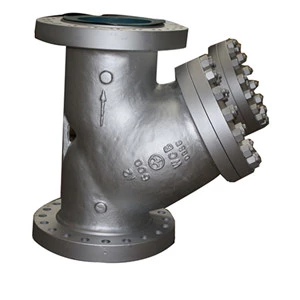A filter is a small device for removing a small amount of solid particles in the liquid, which can make a compressor, a pump, an instrument and other equipment work normally. When the fluid enters the filter cartridge which has the strainer with a certain size, the impurities are blocked and the clean liquids are discharged through the filter outlet. If you want to clean the filter, you just need to take out the strainer which can be assembled. Install the strainer again after it is washed. Therefore, a filter is easy to be used and maintained. The debris such as scale deposits, rust, composite sealant, welding slags and other solid particles in the pipeline often causes damage to the equipment. We often use a filter in the pipeline in order to prevent the fluid containing dust and particles affecting the equipment. A filter should be installed at the upstream pumps so as to prevent the pump from being harmed by construction waste left in the pipeline. A filter can filter solid particles in liquids or gases and protect the device from being damaged and the pipeline from being blocked.
A filter is equipped with a strainer on the flow surface. When the liquid passes the filter, most impurities will be blocked by the strainer. The filter needs regular cleaning to avoid blocking the liquid.
Applications of filters
A filter is applied to liquid and gas materials used in chemical, petrochemical and light industrial production to filter solid impurities. A filter is usually installed at the inlet of a pump and a compressor or in front of a flow meter in order to protect this kind of equipment or instrument.
Standard filters include metric and British two series. Metric series include PN10, PN25 and PN40 three pressure ratings, while British series include Class150 (PN20) and Class300 (PN50) two pressure ratings. Pressure of the metric series filter such as filters with top ends and flat ends start from PN6 and the pressure include PN6, PN10 and PN25.
The main structural materials of the standard filter are cast iron, carbon steel, low alloy steel and austenitic stainless steel four kinds. The working temperature ranges of the filter are as the following. The working temperature range for cast iron is from -20 to 300C℃, carbon steel -20~400℃, low alloy steel 40~ 400℃ and stainless steel -196~400℃.
The stainless steel wire mesh is adopted for the filter, and it can intercept solid particles with a particle size of not less than 614μm.
